 W
WRoscoe Conkling "Fatty" Arbuckle was an American silent film actor, comedian, director, and screenwriter. He started at the Selig Polyscope Company and eventually moved to Keystone Studios, where he worked with Mabel Normand and Harold Lloyd, as well as with his nephew Al St. John. He mentored Charlie Chaplin and discovered Buster Keaton and Bob Hope. He was one of the most popular silent stars of the 1910s and one of the highest paid actors in Hollywood, signing a contract in 1920 with Paramount Pictures for $14,000.
 W
WThe Black Sox Scandal was a Major League Baseball game-fixing scandal in which eight members of the Chicago White Sox were accused of throwing the 1919 World Series against the Cincinnati Reds in exchange for money from a gambling syndicate led by Arnold Rothstein. Judge Kenesaw Mountain Landis was appointed the first Commissioner of Baseball, with absolute control over the sport to restore its integrity.
 W
WThe Chicago Seven were seven defendants—Abbie Hoffman, Jerry Rubin, David Dellinger, Tom Hayden, Rennie Davis, John Froines, and Lee Weiner—charged by the United States federal government with conspiracy, crossing state lines with intent to incite a riot, and other charges related to anti-Vietnam War and countercultural protests in Chicago, Illinois during the 1968 Democratic National Convention. The Chicago Eight became the Chicago Seven after the case against co-defendant Bobby Seale was declared a mistrial during the trial.
 W
WCommonwealth of Pennsylvania v. Mumia Abu-Jamal was a 1982 murder trial in which Mumia Abu-Jamal was tried for the first-degree murder of police officer Daniel Faulkner. A jury convicted Abu-Jamal on all counts and sentenced him to death.
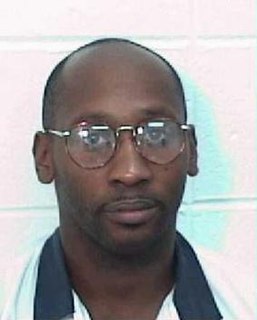 W
WTroy Anthony Davis was an African American man convicted of and executed for the August 19, 1989 murder of police officer Mark MacPhail in Savannah, Georgia. MacPhail was working as a security guard at a Burger King restaurant when he intervened to defend a man being assaulted in a nearby parking lot. During Davis's 1991 trial, seven witnesses testified they had seen Davis shoot MacPhail, and two others testified Davis had confessed the murder to them. There were 34 witnesses who testified for the prosecution, and six others for the defense, including Davis. Although the murder weapon was not recovered, ballistic evidence presented at trial linked bullets recovered at or near the scene to those at another shooting in which Davis was also charged. He was convicted of murder and various lesser charges, including the earlier shooting, and was sentenced to death in August 1991.
 W
WThe Dawson Five were defendants in a criminal court case in Dawson, Georgia, where they were charged with the murder of a white customer in a roadside convenience store. The five young black men, one of whom was a juvenile, became known as "The Dawson Five". On January 22, 1976, Gordon B. Howell Jr. was shot during a robbery of Tiny's Grocery, located at Bridges Crossroads near Dawson. On December 19, 1977, after over a year of imprisonment, time in the national spotlight, and contentious pretrial hearings; District Attorney John Irwin announced that he was dropping all charges against the five defendants, after a ruling by the presiding Judge Geer that voided Roosevelt Watson's forced confession. The court dropped the charges against the group of five; Roosevelt Watson, Henderson Watson, J.D. Davenport, Johnnie B. Jackson, and George Poor, when it found evidence of police misconduct, including coerced confessions, intimidation and improper identification procedures.
 W
WThe Fort Lawton riot refers to a series of events in August 1944 starting with a violent conflict between U.S. soldiers and Italian prisoners of war at Fort Lawton in Seattle, Washington during World War II. After the riot, prisoner Guglielmo Olivotto was found dead. This led to the court-martial of 43 soldiers, all of them African Americans.
 W
WIn 1989, a mentally handicapped 17-year-old girl was raped with a broomstick and a baseball bat by members of the Glen Ridge High School football team in Glen Ridge, New Jersey. This event attracted nationwide attention, mainly due to the perception that the assailants had been given special treatment by the school and local authorities due to their status as local football stars. The events were later documented in a book and TV movie.
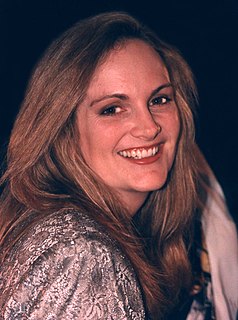 W
WPatricia Campbell Hearst is an American author and actress, and a granddaughter of American publishing magnate William Randolph Hearst. She became internationally known for events following her 1974 kidnapping by the left-wing organization Symbionese Liberation Army. She was found and arrested 19 months after being abducted, by which time she was a fugitive wanted for serious crimes committed with members of the group. She was held in custody, and there was speculation before trial that her family's resources would enable her to avoid time in prison.
 W
WJoan Olive Robinson Hill was a socialite and equestrian from Houston, Texas. Her unexplained death at age 38 led to her husband, John Hill, becoming the first person to be indicted by the state of Texas on the charge of murder by omission. The case precipitated a series of events that included the 1972 murder of John Hill and, two years later, the fatal police shooting of the man accused of that murder. Adopted as an infant by wealthy oil tycoon Davis "Ash" Robinson and his wife, Rhea, Joan became an equestrian at a young age. She excelled and continued the sport into adulthood, ultimately winning several national titles.
 W
WJohn Warnock Hinckley Jr. is an American criminal who, on March 30, 1981, attempted to assassinate U.S. President Ronald Reagan in Washington, D.C. He wounded Reagan with a bullet from a revolver that ricocheted and hit Reagan in the chest. He also wounded police officer Thomas Delahanty and Secret Service agent Tim McCarthy, and he critically wounded Press Secretary James Brady, who was permanently disabled in the shooting.
 W
WThe impeachment of Bill Clinton was initiated on October 8, 1998, when the United States House of Representatives voted to commence impeachment proceedings against Bill Clinton, the 42nd president of the United States, for "high crimes and misdemeanors". The specific charges against Clinton were lying under oath and obstruction of justice. The charges stemmed from a sexual harassment lawsuit filed against Clinton by Paula Jones and from Clinton's testimony denying that he had engaged in a sexual relationship with White House intern Monica Lewinsky. The catalyst for the president's impeachment was the Starr Report, a September 1998 report prepared by Independent Counsel Ken Starr for the House Judiciary Committee.
 W
WWinnie Ruth Judd, born Winnie Ruth McKinnell, also known as Marian Lane, was a medical secretary in Phoenix, Arizona, who was accused of murdering her friends, Agnes Anne LeRoi and Hedvig Samuelson, in October 1931. The murders were discovered when Judd transported the victims' bodies, one of which had been dismembered, from Phoenix to Los Angeles, California by train in trunks and other luggage, causing the press to name the case the "Trunk Murders". Judd allegedly committed the murders to win over the affections of Jack Halloran, a prominent Phoenix businessman.
 W
WEdgar Ray Killen was an American white supremacist and convicted criminal. A Ku Klux Klan organizer, he planned and directed the murders of James Chaney, Andrew Goodman, and Michael Schwerner, three civil rights activists participating in the Freedom Summer of 1964. He was found guilty in state court of three counts of manslaughter on June 21, 2005, the forty-first anniversary of the crime, and sentenced to 60 years in prison. He appealed the verdict, but the sentence was upheld on April 12, 2007, by the Supreme Court of Mississippi. He died in prison on January 11, 2018, six days before his 93rd birthday.
 W
WRodney Glen King was an American author and activist who was a victim of police brutality by the Los Angeles Police Department. On March 3, 1991, King was beaten by LAPD officers after a high-speed chase during his arrest for drunk driving on I-210. A civilian, George Holliday, filmed the incident from his nearby balcony and sent the footage to local news station KTLA. The footage showed an unarmed King on the ground being beaten after initially evading arrest. The incident was covered by news media around the world and caused a public furor.
 W
WNathan Freudenthal Leopold Jr. and Richard Albert Loeb, usually referred to collectively as Leopold and Loeb, were two wealthy students at the University of Chicago who in May 1924 kidnapped and murdered 14-year-old Bobby Franks in Chicago, Illinois, United States. They committed the murder—characterized at the time as "the crime of the century"—as a demonstration of their ostensible intellectual superiority, which, they thought, enabled them to carry out a "perfect crime" and absolve them of responsibility for their actions.
 W
WOn March 1, 1932, Charles Augustus Lindbergh Jr., 20-month-old son of aviators Charles Lindbergh and Anne Morrow Lindbergh, was abducted from the crib in the upper floor of the Lindberghs' home, Highfields, in East Amwell, New Jersey, United States. On May 12, the child's corpse was discovered by a truck driver by the side of a nearby road.
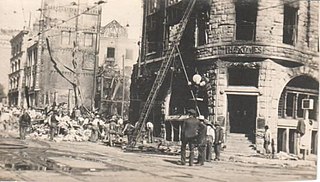 W
WThe Los Angeles Times bombing was the purposeful dynamiting of the Los Angeles Times Building in Los Angeles, California, on October 1, 1910, by a union member belonging to the International Association of Bridge and Structural Iron Workers. The explosion started a fire which killed 21 newspaper employees and injured 100 more. It was termed the "crime of the century" by the Times.
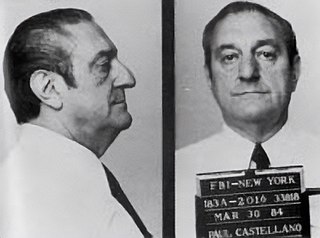 W
WThe Mafia Commission Trial was a criminal trial in New York City, United States, that lasted from February 25, 1985, until November 19, 1986. Using evidence obtained by the Federal Bureau of Investigation, 11 organized crime figures, including the heads of New York's so-called "Five Families," were indicted by United States Attorney Rudolph Giuliani under the Racketeer Influenced and Corrupt Organizations Act (RICO) on charges including extortion, labor racketeering, and murder. Eight of them were convicted under RICO, and most of them were sentenced to 100 years in prison on January 13, 1987, the maximum possible sentence under that law.
 W
WThe McMartin preschool trial was a day care sexual abuse case in the 1980s, prosecuted by the Los Angeles District Attorney Ira Reiner. Members of the McMartin family, who operated a preschool in Manhattan Beach, California, were charged with numerous acts of sexual abuse of children in their care. Accusations were made in 1983, arrests and the pretrial investigation took place from 1984 to 1987, and trials ran from 1987 to 1990. The case lasted seven years but resulted in no convictions, and all charges were dropped in 1990. By the case's end, it had become the longest and most expensive in American history. The case was part of day-care sex-abuse hysteria, a moral panic over alleged Satanic ritual abuse in the 1980s and early 1990s.
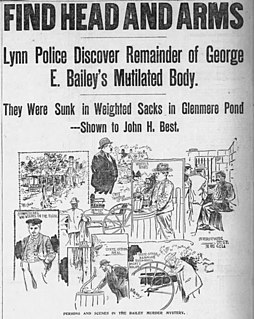 W
WThe murder of George E. Bailey occurred on October 8, 1900, at Breakheart Hill Farm in Saugus, Massachusetts. Bailey's employee, John C. Best, was subsequently convicted of the murder and executed.
 W
WIn 1970 there was a series of criminal prosecutions in New Haven, Connecticut against various members of the Black Panther Party. The charges ranged from criminal conspiracy to felony murder. All indictments stemmed from the murder of 19-year-old Alex Rackley in the early hours of May 21, 1969. The trials became a rallying-point for the American Left, and marked a decline in public support, even among the black community, for the Black Panther Party.
 W
WJulius and Ethel Rosenberg were American citizens who were convicted of spying on behalf of the Soviet Union. The couple was accused of providing top-secret information about radar, sonar, jet propulsion engines, and valuable nuclear weapon designs; at that time the United States was the only country in the world with nuclear weapons. Convicted of espionage in 1951, they were executed by the federal government of the United States in 1953 in the Sing Sing correctional facility in Ossining, New York, becoming the first American civilians to be executed for such charges and the first to suffer that penalty during peacetime.
 W
WThe Becker–Rosenthal trial was a 1912 trial in New York City for the murder of Herman Rosenthal, a bookmaker, by NYPD Lieutenant Charles Becker and members of the Lenox Avenue Gang. The trial ran from October 7 to October 30, 1912, and restarted on May 2 to May 22, 1914. Other procedural events took place in 1915.
 W
WNicola Sacco and Bartolomeo Vanzetti were two Italian immigrant anarchists who were erroneously convicted of murdering a guard and a paymaster during the April 15, 1920, armed robbery of the Slater and Morrill Shoe Company in Braintree, Massachusetts, United States. Seven years later, they were electrocuted in the electric chair at Charlestown State Prison.
 W
WThe San Quentin Six were six inmates at San Quentin State Prison in the U.S. state of California, who were accused of participating in an August 21, 1971 escape attempt that left six people dead, including George Jackson, a co-founder of the Black Guerrilla Family.
 W
WThe Scopes Trial, formally known as The State of Tennessee v. John Thomas Scopes and commonly referred to as the Scopes Monkey Trial, was an American legal case in July 1925 in which a high school teacher, John T. Scopes, was accused of violating Tennessee's Butler Act, which had made it unlawful to teach human evolution in any state-funded school. The trial was deliberately staged in order to attract publicity to the small town of Dayton, Tennessee, where it was held. Scopes was unsure whether he had ever actually taught evolution, but he incriminated himself deliberately so the case could have a defendant.
 W
WThe Scottsboro Boys were nine African American teenagers, ages 12 to 19, accused in Alabama of raping two white women in 1931. The landmark set of legal cases from this incident dealt with racism and the right to a fair trial. The cases included a lynch mob before the suspects had been indicted, all-white juries, rushed trials, and disruptive mobs. It is commonly cited as an example of a miscarriage of justice in the United States legal system.
 W
WShanda Renee Sharer was an American girl who was tortured and burned to death in Madison, Indiana by four teenage girls. She was 12 years old at the time of her death. The incident attracted international attention due to both the brutality of the murder and the young age of the perpetrators, who were aged between 15 and 17 years old. The case was covered on national news and talk programs and has inspired a number of episodes on fictional crime shows.
 W
WOn March 1, 1967, New Orleans District Attorney Jim Garrison arrested and charged New Orleans businessman Clay Shaw with conspiring to assassinate President Kennedy, with the help of Lee Harvey Oswald, David Ferrie, and others. On January 29, 1969, Shaw was brought to trial in Orleans Parish Criminal Court on these charges. On March 1, 1969, a jury took less than an hour to find Shaw not guilty. To date, it is the only trial to be brought for the assassination of President Kennedy.
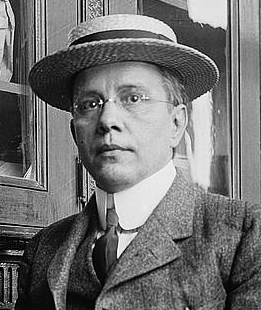 W
WHarry Kendall Thaw was the son of coal and railroad baron William Thaw Sr. of Pittsburgh, Pennsylvania. Heir to a multimillion-dollar fortune, the younger Thaw is most notable for shooting and killing the renowned architect Stanford White on June 25, 1906, on the rooftop of New York City's Madison Square Garden in front of hundreds of witnesses.
 W
WUnited States v. Nixon, 418 U.S. 683 (1974), was a landmark United States Supreme Court case that resulted in a unanimous decision against President Richard Nixon, ordering him to deliver tape recordings and other subpoenaed materials to a federal district court. Issued on July 24, 1974, the decision was important to the late stages of the Watergate scandal, when there was an ongoing impeachment process against Richard Nixon. United States v. Nixon is considered a crucial precedent limiting the power of any U.S. president to claim executive privilege.
 W
WGloria Laura Vanderbilt was an American artist, author, actress, fashion designer, heiress, and socialite. She was a member of the Vanderbilt family of New York and the mother of CNN television anchor Anderson Cooper.